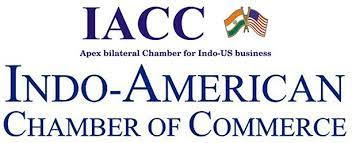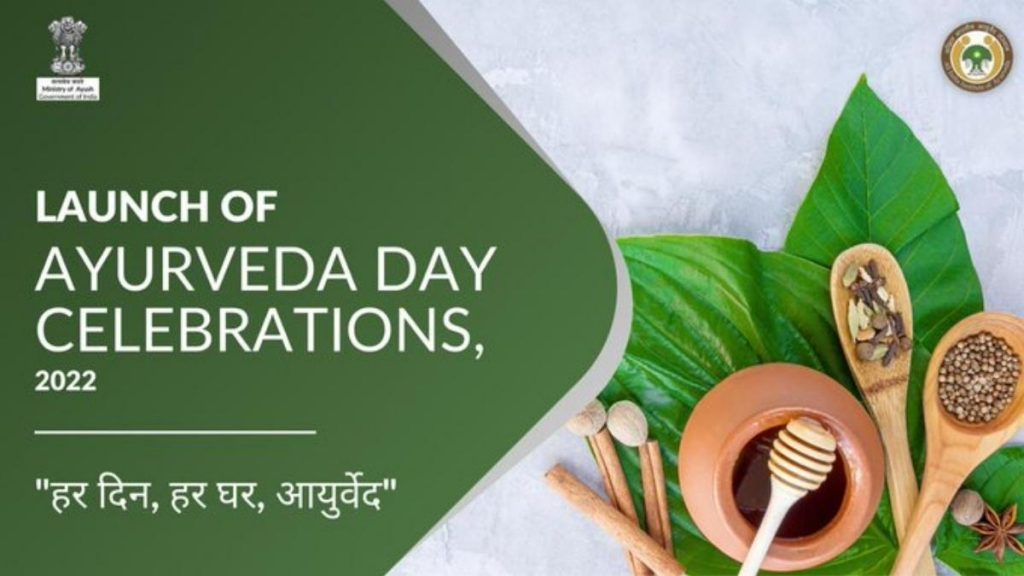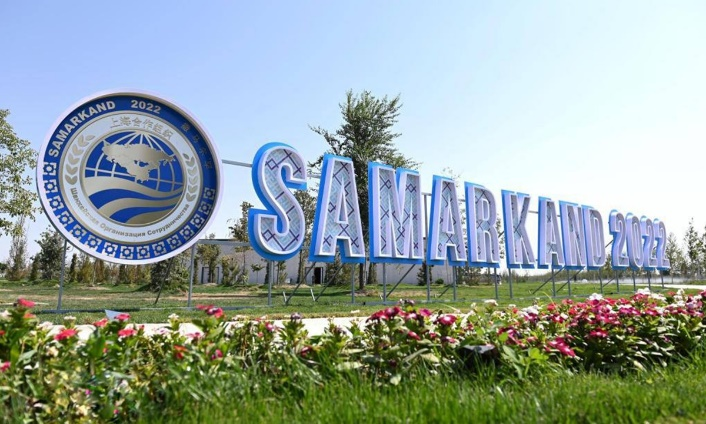AIR Discussions (September 2nd Week)
AIR SPOTLIGHT
INDIA-BANGLADESH

Disclaimer: Copyright infringement not intended
Context
- Bangladesh Prime Minister Sheikh Hasina just completed a successful state visit to India where several agreements were signed besides a few project inaugurations and announcements.
- Coming at a time when both the countries have achieved many lasting milestones in the eight years of coterminous leadership of the current prime ministers in their respective nations, this visit has set the ball rolling for the next few years of cooperation on many fronts, primarily economics and connectivity.
- As bilateral trade has soared to $18 billion now, doubling in the last five years, and as Bangladesh moves from the least developed countries category to developing country status in the next couple of years, both the countries confabulated on the way forward to keep the special relationship growing.
India-Bangladesh Relations
- India was the first country to recognize Bangladesh as a separate and independent state and established diplomatic relations with the country immediately after its independence in December 1971.
- India's links with Bangladesh are civilisational, cultural, social and economic. There is much that unites the two countries – a shared history and common heritage, linguistic and cultural ties, and passion for music, literature and the arts.
- This commonality is reflected in our multi-dimensional and expanding relations. India and Bangladesh’s geographical locations complement each other and present an opportunity for both to further develop their connectivity links and economies.
- In the last more than four decades, the two countries have continued to consolidate their political, economic, trade and cultural relations and have built a comprehensive institutional framework to promote bilateral cooperation.
- Both countries share 54 rivers, out of which, a treaty is already in existence for sharing of the Ganges water and both sides are working for early finalisation of agreements for sharing of water of other common rivers.
- Both countries are also cooperating in the conservation of the entire Sunderbans ecosystem, which is a common biodiversity heritage.
Areas of conflict
- Farakka Barrage Dispute:
- In 1996, the sharing of the Ganga waters was successfully agreed upon between the two nations but there is a long pending dispute over India’s construction and operation of Farakka Barrage which was constructed to increase the water supply in river Hooghly.
- Bangladesh complains that it does not get a fair share of the water in the dry season and some of its areas get flooded when India releases excess water during the monsoons.
- Since, water is a state subject in India, so the bottleneck lies in the non-consensus between the state government of Bengal and India, to review the dam’s relevance & give some concessions to Bangladesh.
- Teesta River Dispute:
- Teesta river is a major source of irrigation for the paddy growing greater Rangpur region of Bangladesh. Bangladesh has sought an equitable distribution of Teesta waters, on the lines of the Ganga Water Treaty of 1996.
- In 2011 an arrangement was finalized, which awarded India 42.5% water, and Bangladesh 37.5% while the remaining 20% would flow unhindered to maintain a minimum water flow of the river.
- This agreement could not be executed too due to opposition from the chief minister of West Bengal.
- Illegal Infiltration:
- The mass exodus of more than one million Rohingyas since 2017 and their infiltration into India via Bangladesh is serious to peace and security in the region.
- Currently, there are 1.1 million Rohingya refugees in Bangladesh. India has some 40,000 Rohingya refugees scattered across the country.
- Despite Rohingyas, the problem of Illegal Bangladeshi infiltrations has been unresolved for many decades and the influx is continued to date.
- Drug Smuggling & Trafficking:
- There have been many incidences of cross-border drug smuggling & trafficking.
- Humans (Children & Women) are trafficked & various animal & bird species are poached through these borders.
- Terrorism:
- The borders are susceptible to terrorist infiltration
- Various outfits like Jamaat-ul-Mujahideen Bangladesh (JMB) are trying to spread their tentacles across India.
The outcome of the visit
- India-Bangladesh Singed MoUs:
- An MoU between the Ministry of Jal Shakti, Government of India and Ministry of Water Resources, Government of Bangladesh on withdrawal of Water by India and Bangladesh from common border river Kushiyara.
- MoU between the Ministry of Railways (Railway Board), Government of India and the Ministry of Railways, Government of Bangladesh on the training of Bangladesh Railway personnel in India.
- MoU between the Ministry of Railways (Railway Board), Government of India and the Ministry of Railways, Government of Bangladesh on Collaboration in IT systems such as FOIS and other IT applications for Bangladesh Railway.
- MoU between the National Judicial Academy, India and the Supreme court of Bangladesh on Training and Capacity Building Programme for Bangladesh Judicial Officers in India.
- MoU on Scientific and Technological Cooperation between Council for Scientific & Industrial Research (CSIR), India and Bangladesh Council of Scientific & Industrial Research (BCSIR), Bangladesh.
- MoU on Cooperation in the Areas of Space Technology. MoU between the Prasar Bharti and Bangladesh Television (BTV) on Cooperation in Broadcasting.
- The list of projects unveiled:
- 1320 (660x2) MW supercritical coal-fired thermal power plant at Rampal, Khulna is being set up at an estimated cost of approximately USD 2 billion with USD 1.6 billion as Indian Development Assistance under the Concessional Financing Scheme.
- An important project that was inaugurated was the Rupsha bridge. The 5.13 km Rupsha rail bridge is a key part of the 64.7 km Khulna-Mongla Port single-track broad-gauge rail project, connecting for the first time Mongla Port with Khulna by rail, and thereafter to Central and North Bangladesh and also to the India border at Petrapole and Gede in West Bengal.
- Another project was announced on the supply of road construction equipment and machinery. The project consists of the supply of road maintenance and construction equipment and machinery in 25 packages to the Bangladesh Road and Highways Department.
- A Khulna-Darshana railway line link project was also unveiled during the delegation-level talks.
- Parbatipur -Kaunia railway line was also inaugurated by the two heads of state of India and Bangladesh.
- The conversion of the existing Metre Gauge line to the Dual Gauge line project is estimated at USD 120.41 million. The project will connect the existing cross-border rail at Birol (Bangladesh)-Radhikapur (West Bengal) and will enhance bilateral rail connectivity.
- Presentation of the book containing the translation of the historic ‘7th March Speech’ of Bangabandhu Sheikh Mujibur Rahman in 23 Indian and 5 languages of other South Asian countries, by Prime Minister Sheikh Hasina to Prime Minister Narendra Modi.
This was Sheikh Hasina’s second visit since 2019. The meeting was majorly about deeper cooperation, sharing of river waters, connectivity, energy and food security as well as state and investment opportunities. In recent years both India and Bangladesh have gained an upswing in relationship both in terms of cultural and historical ties.
What are the reasons for the recent upswing in the relationship between India and Bangladesh?
- The recent years have shown an upswing in the relationship and called the sonali adhyay e., the golden period of India-Bangladesh relations.
- The present relationship is based on the cultural and historical ties between the two countries that started in 1971. In the Liberation war of 1971, India played a crucial role which even became the foundation for the present relationship between the two countries.
- Other than that, if one looks at the culture, the language, and the people of the two countries, both share deep historical ties that go beyond the 50 years (beyond 1971). For example, Rabindranath Tagore, Kazi Nazrul Islam, Bangabandhu Sheikh Mujibur Rahman, etc.
- In recent times the depth of the relationship has been highlighted during the time of the COVID-19 pandemic – where both countries retained a high level of interaction that included high-level visits, continuity of trade and the overcome of the supply chain challenges.
- The year 2021 marked the 50 years of the establishment of diplomatic ties between the countries. The year also marked the top three Indian dignitaries visiting Bangladesh which included; the Prime Minister, President and Foreign Minister of India.
The signing of the Memorandum of Understanding (MoU) on the interim sharing of water of the Kushiyara river was finalised at the 38th Ministerial Level meeting of the India-Bangladesh Joint-River Commission (JRC) held in August 2022.
How crucial are such agreements for both countries?
- India and Bangladesh share 54 rivers and hence, it is considered an important area of bilateral relations for which both the countries have been working hard to evolve ways in means so that there is an equitable distribution of water.
- The area of engagement includes the utilization of resources and minimising the impact of flood and pollution by sharing real-time data.
- Beyond rivers, both countries are aiming to strengthen the connectivity between the two i.e., road and rail connectivity which will further increase trade. India has even funded railway projects in Bangladesh through the Line of Credit.
- India through this connectivity aspires to build a bridge or a connecting line between India and Southeast Asia. For example; India-Myanmar-Thailand trilateral highway projects.
Sheikh Hasina has praised PM Narendra Modi’s gesture of providing COVID-19 vaccines to neighbouring countries under the Vaccine Maitri programme and rescuing the Bangladeshi students who were stuck in Eastern Europe amid the Russia-Ukraine conflict.
How do such efforts by the Indian government strengthen bilateral relations?
- When the pandemic struck the world, India was the first country to offer support to Bangladesh in terms of vaccines, providing logistical support, medical aid like oxygen, etc.
- Such efforts strengthen the relationship between the two countries and it is even fulfilling the Indian objective of the Neighbourhood First Policy.
- In a recent interview the Bangladeshi Prime Minister called India a tested friend. This friendship started with the Liberation War of Then during the time of economic crisis or even natural calamity, India is always the first country to offer help to Bangladesh.
Though after the deterioration of the relationship the hope has been renewed after Prime Minister Hasina’s visit, especially because she and Prime Minister Narendra Modi stated that the spirit of friendship will help these two historic allies resolve all pending issues — and that the ongoing engagement between the two critical actors in South Asia will create conducive conditions for shared prosperity and peace in the region.
https://newsonair.gov.in/Spotlight.aspx#
https://t.me/+hJqMV1O0se03Njk9
NEWS IN BRIEF: PRELIMS SPECIAL
Presidency of G20

Disclaimer: Copyright infringement not intended
Context
- India will assume the Presidency of the G20 for one year from 1st December 2022 to 30th November 2023. India is expected to host over 200 G20 meetings across the country.
- The G20 Leaders' Summit at the level of Heads of State and Government is scheduled to be held in September 2023 in New Delhi.
About G20
- The Group of Twenty, or G20, is the premier forum for international cooperation on the most important aspects of the international economic and financial agenda. It brings together the world’s major advanced and emerging economies.
- The G20 comprises Argentina, Australia, Brazil, Canada, China, EU, France, Germany, India, Indonesia, Italy, Japan, Mexico, Russia, Saudi Arabia, South Africa, South Korea, Turkey, UK and USA.
- The G20 Countries together represent around 90% of global GDP, 80% of global trade, and two-thirds of the world’s population.
- The objectives of the G20 are:
- Policy coordination between its members to achieve global economic stability, and sustainable growth;
- To promote financial regulations that reduce risks and prevent future financial crises; and
- To create a new international financial architecture.
- India is currently part of the G20 Troika(current, previous and incoming G20 Presidencies) comprising Indonesia, Italy, and India. During the Presidency, India, Indonesia and Brazil would form the troika. This will be the first time when the troika would consist of three developing countries and emerging economies, providing them with a greater voice.
- At present the G20 Presidency is with Indonesia.
https://newsonair.gov.in/News?title=India-to-assume-the-Presidency-of-G20-for-one-year&id=447593
https://t.me/+hJqMV1O0se03Njk9
Indo-American Chamber of Commerce

Disclaimer: Copyright infringement not intended
Context
- The Union Minister for Road Transport and Highways Nitin Gadkari has virtually inaugurated the 19th Indo-US Economic Summit of the Indo-American Chamber of Commerce.
About Indo-American Chamber of Commerce
- The IACC was established in 1968. It is the apex bilateral Chamber that synergizes the India-US Economic Engagement. It was started by the then Ambassador Chester Bowles.
- Its vision:
- To be the principal bilateral chamber committed to the promotion of industrial, economic, business and commercial activities between the United States of America and India.
- Its mission:
- To serve the business needs of our members.
- To act as a catalyst in promoting economic growth between the two countries.
- To protect and promote the collective bilateral need and interests of the Indo-US business community
- To effectively lobby with two governments on significant bilateral issues affecting Indo-US commerce
https://t.me/+hJqMV1O0se03Njk9
Start-up Hub

Disclaimer: Copyright infringement not intended
Context
- Ministry of Electronics and Information Technology (MeitY) Start-up Hub in collaboration with Meta will launch a programme to support and accelerate XR technology start-ups across India.
About Start-up Hub
- India is home to one of the most vibrant start-up ecosystems with close to 8000 tech start-ups, making it the 2nd largest start-up ecosystem in the world.
- Hence, innovation and entrepreneurship is the emerging focus area that is being aggressively promoted to give a fillip to the Indian economy.
- Ministry of Electronics & Information Technology (MeitY), Government of India is leading and facilitating a gamut of Innovation and IPR-related activities across the country towards the expansion of this ecosystem.
- To facilitate MeitY's vision of promoting technology innovation, start-ups and the creation of Intellectual Properties, a nodal entity called ‘MeitY Start-up Hub' (MSH) has been set up under its aegis.
- MSH will act as national coordination, facilitation and monitoring centre that will integrate all the incubation centres, start-ups and innovation-related activities of MeitY.
About Meta
- The metaverse is where the physical and digital worlds come together. It is a space where digital representations of people (via custom avatars created by you) interact at work and play, meet in their offices, go to concerts, and even try on clothes.
- To break this down further into very simple terms, the internet is currently at its 2D phase, where one normally comments on people's posts or YouTube videos to interact with them. However, the metaverse takes it to the 3D phase of the internet, where one can interact with people on a YouTube video or post rather than comment on each other.
https://t.me/+hJqMV1O0se03Njk9
Ayurveda Day 2022

Disclaimer: Copyright infringement not intended
Context
- All India Institute of Ayurveda (AIIA) has launched Ayurveda Day 2022 programme. The six-week long programme will continue till the 23rd of October.
- AIIA has been chosen as the nodal agency for driving the Ministry of Ayush’s mandate for Ayurveda Day this year. The theme for the celebration is ‘Har Din Har Ghar Ayurveda’.
About Ayurveda Day
- Ministry of AYUSH, Govt. of India decided to celebrate Ayurveda Day every year on the day of Dhanvantari Jayanti (Dhanteras) since 2016.
- On this occasion, Ministry also facilitates 3-4 Ayurveda experts with the "National Dhanwantari Ayurveda Award" comprising of Citation, Trophy (Dhanwantari Statue) and Cash reward of Rupees five lakh.
- For the year 2022, it will be observed on 23rd This is the 7th Ayurveda Day since it is observed first time in the year 2016.
- Ayurveda relies on a comprehensive program that includes conscious eating (Aahara), lifestyle (Vihar), sleep (Nidra), and behavioural and psychological intervention for extension of Longevity (health span). Rasayana Tantra, one of the eight branches of Ayurveda is dedicated to rejuvenation, regeneration, immune modulation, healthy ageing and enhances longevity.
https://newsonair.gov.in/News?title=AIIA-launches-Ayurveda-Day-2022-programme&id=447559
https://t.me/+hJqMV1O0se03Njk9
SCO Summit

Disclaimer: Copyright infringement not intended
Context
- Prime Minister Narendra Modi to attend the 22nd Meeting of the Council of heads of the State of the Shanghai Cooperation Organisation (SCO) in Samarkand of Uzbekistan.
- Topical issues of regional and global importance are also expected to be discussed at the meeting. Prime Minister Modi is also likely to hold a few bilateral meetings on the sidelines of the Summit.
About SCO
- The Shanghai Cooperation Organization (SCO) is a permanent intergovernmental international organization, the establishment of which was announced on June 15, 2001, in Shanghai by the Republic of Kazakhstan, the People's Republic of China, the Kyrgyz Republic, the Russian Federation, the Republic of Tajikistan, the Republic of Uzbekistan. It was preceded by the mechanism of the Shanghai Five.
- In June 2002, the Charter of the Shanghai Cooperation Organization was signed at a meeting of the Council of Heads of State in St. Petersburg, on September 19, 2003, and entered into force. This is a basic statutory document that fixes the goals and principles of the organization, its structure and main activities.
- On June 8-9, 2017, Astana hosted a historic meeting of the Council of Heads of States of the Shanghai Cooperation Organization, during which the status of a member State of the Organization was granted to the Republic of India and the Islamic Republic of Pakistan.
https://t.me/+hJqMV1O0se03Njk9




1.png)
